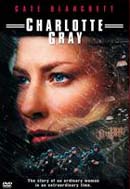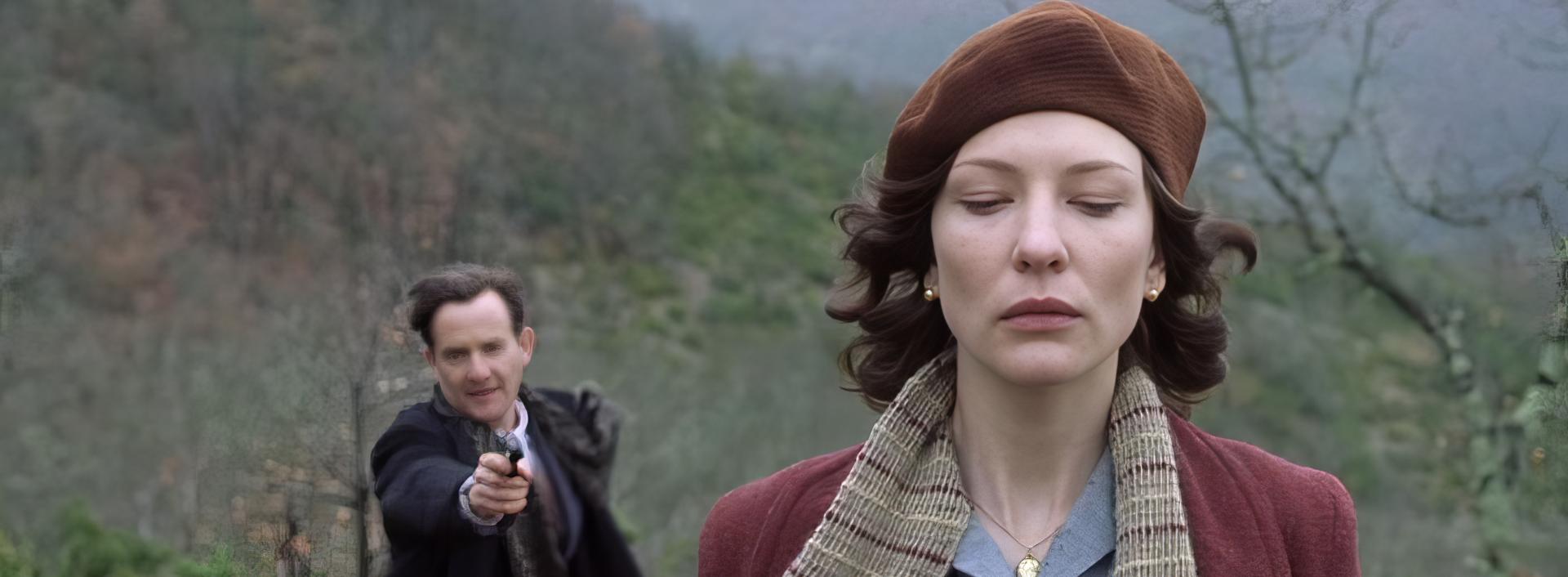Charlotte Gray
 for some war related violence, sensuality and brief strong language.
for some war related violence, sensuality and brief strong language.
Reviewed by: Charity Bishop
CONTRIBUTOR
| Moral Rating: | Average |
| Moviemaking Quality: |
|
| Primary Audience: | Adults Teens |
| Genre: | War Romance Drama |
| Length: | 2 hr. 1 min. |
| Year of Release: | 2001 |
| USA Release: |
January 11, 2002 |

OVERCOMING FEAR, ANXIETY AND WORRY— What does the Bible say?
Courage and self-sacrifice
Conviction
Grief
| Featuring |
|---|
| Cate Blanchett, Billy Crudup, Michael Gambon, James Fleet, Anton Lesser |
| Director |
|
Gillian Armstrong |
| Producer |
| Robert Bernstein, Sarah Curtis, Elinor Day, Hanno Huth, Catherine Kerr, Cathy Lord, Douglas Rae, Paul Webster |
| Distributor |
Cate Blanchett is such a diversified actress that to see her in anything is to watch pure poetry in motion. Refusing to allow herself to slide into a stereotype, she generally chooses strong, dynamic and influential female roles who leave a lingering impression. The character of Charlotte Gray is probably her strongest and most compelling lead since “Elizabeth”.
Set in Nazi-occupied France at the height of World War II, “Charlotte Gray” is the story of a young woman who joins the French Resistance in the hope of locating and rescuing her missing lover, a RAF pilot. But what Charlotte finds instead is that there are more important battles to be fought… and that she cannot trust anyone. Traveling to London for purposes of her own, Charlotte Gray is a quirky, beautiful, and intelligent Scottish girl who speaks French fluently and loves to read. While on the train she is brought into conversation with an unknown gentleman who leaves her his card, and an offer for her and friends to attend a book gala several evenings later.
While there she makes the acquaintance of Peter Gregory, a courageous young British flyer who is soon to be sent to France to aid with the resistance. Having fallen in love with him, against his better wishes after his departure she joins up with the spy force SOE, which uses women as couriers in Nazi-occupied countries. When Peter’s plane goes down somewhere over communist south France, Charlotte asks to be stationed there as a courier, realizing, as her commanding officer has explained, that “two in three don’t come back.” Parachuting into the south by the dead of night, she is placed into the temporary hands of a French communist by the name of Julian while she awaits her English contact.
On a trial run, she is to meet and pass off a package to a woman in a coffee shop; but the woman is followed and arrested, placing Charlotte in danger. About this time the Jewish parents of two little boys are taken by the government and sent to the concentration camps. The children are taken to the home of Loque’s aging and interminable father, Levade, who also takes in Charlotte when she’s given a new assignment… to lay low and keep to the grounds as his housekeeper while running secret missions with Julian and his associates at night. But in the meantime she hasn’t forgotten about Peter, and makes a desperate attempt to locate him. This one vague ideal of hope to which she grasps may cost her everything…
As a spy thriller, “Charlotte Gray” moves somewhat at a measured pace and did little to please the critics save for their praise of excellent performances by Cate Blanchett (“Bandits,” “An Ideal Husband,” “Oscar and Lucinda”), Michael Gambon (“Gosford Park,” “Sleepy Hollow”), Billy Crudup, and Anton Lesser (“Lorna Doone”); but as a WWII era romance and a story of courage, conviction, and self-sacrifice, it seems palatable. Not perfect, but pleasing to the eye and with a certain amount of melodramatic tension.
Charlotte is surprisingly two-dimensional; her grief, horror, and fear is very real. The characters are all equally charismatic and several scenes gut-wrenching. The cinematography on this film, along with the haunting music, are utterly beautiful and captivating.
Content-wise, most of the violence is anticipated and not overly graphic or gory. Men mowed down by German machine guns (only implied), and one man is shot at close range. We don’t see the actual impact, but blood sprays onto the face of his female companion and his body falls to the ground. Things blow up and a train is derailed; a man whose jacket is caught on fire is seen; a woman is struck in the face with a rifle butt. Language is mild except for two (possibly three) uses of the f-word, and one abuse each of Jesus and Christ.
Sensitive viewers should be aware that Jews are seen shipping out in a prison-train, including central characters. Like all movies, sex is misunderstood for love and we see Charlotte and Peter lying beside one another in bed toward the beginning of the picture, shortly after their first meeting. Julian and Charlotte make out passionately to distract a guard, whom they then knock to the ground. A plot twist involves attempted sexual blackmail. One of the townsmen knows more about Charlotte and her companions than is wise and implies that for “favors” he’ll keep quiet. He kisses her passionately and tries to run his hand up her leg before she pulls away, promising that she’ll be back “tomorrow.” (But she never comes.)
It’s a pity that sensuality interrupts a good plot line with a bittersweet ending. There’s a lot to like about Charlotte’s character, even with her unfortunately loose sense of morals. One glimpses the truth found in us all… that the future is always frightening, but that when the occasion presents itself, even the most meek can find within themselves enough courage to face any situation. I particularly liked her selfless love for the two Jewish boys and the great grief she showed over her faults. Perhaps not as diverting as most WWII thrillers, but at the very least Charlotte Gray leaves you with something to think about.
Editor’s Note: For a terrific Christian-based film with a similar theme, see “Le Chambon: La Colline Aux Mille Enfants” (in French with English subtitles).



